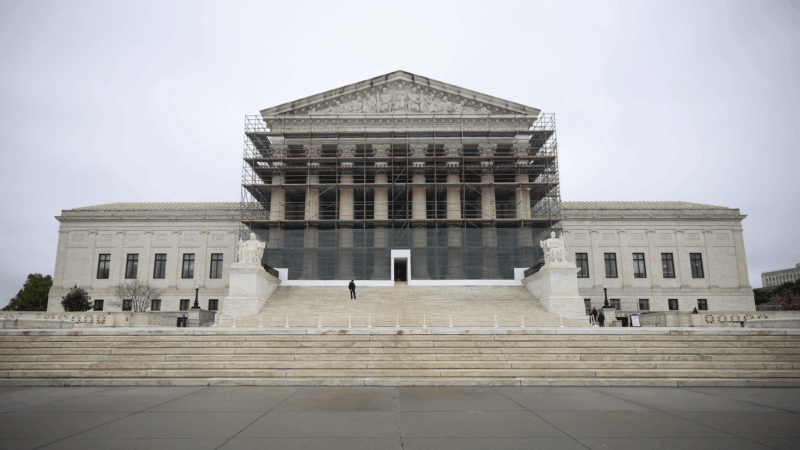Supreme Court limits nationwide injunctions in birthright citizenship order
The Supreme Court in a 6-3 decision along ideological lines on Friday sided with the Trump administration’s request to limit universal injunctions issued by federal courts. The opinion in the birthright citizenship case was highly anticipated.
“Universal injunctions likely exceed the equitable authority that Congress has given to federal courts,” the conservative majority said. “The Court grants the Government’s applications for a partial stay of the injunctions entered below, but only to the extent that the injunctions are broader than necessary to provide complete relief to each plaintiff with standing to sue.”
Listen to live special coverage on the decision:
At issue was how the lower courts should handle President Trump’s executive order on birthright citizenship. On his first day in office this year, Trump issued an executive order declaring that the children of parents who enter the U.S. illegally or on a temporary visa are not entitled to automatic citizenship.
Immigrant rights groups and 22 states sued, and three different federal district court judges invalidated Trump’s order, issuing what are called universal injunctions barring the administration from enforcing the Trump policy anywhere in the country.
When the courts of appeal refused to intervene while the litigation proceeded, the Trump administration asked the Supreme Court to block universal injunctions altogether.
This is a breaking news story and will be updated.
Malinowski concedes to Mejia in Democratic House special primary in New Jersey
With the race still too close to call, former congressman Tom Malinowski conceded to challenger Analilia Mejia in a Democratic primary to replace the seat vacated by New Jersey Gov. Mikie Sherrill.
FBI release photos and video of potential suspect in Guthrie disappearance
An armed, masked subject was caught on Nancy Guthrie's front doorbell camera one the morning she disappeared.
Reporter’s notebook: A Dutch speedskater and a U.S. influencer walk into a bar …
NPR's Rachel Treisman took a pause from watching figure skaters break records to see speed skaters break records. Plus, the surreal experience of watching backflip artist Ilia Malinin.
In Beirut, Lebanon’s cats of war find peace on university campus
The American University of Beirut has long been a haven for cats abandoned in times if war or crisis, but in recent years the feline population has grown dramatically.
Judge rules 7-foot center Charles Bediako is no longer eligible to play for Alabama
Bediako was playing under a temporary restraining order that allowed the former NBA G League player to join Alabama in the middle of the season despite questions regarding his collegiate eligibility.
American Ben Ogden wins silver, breaking 50 year medal drought for U.S. men’s cross-country skiing
Ben Ogden of Vermont skied powerfully, finishing just behind Johannes Hoesflot Klaebo of Norway. It was the first Olympic medal for a U.S. men's cross-country skier since 1976.







